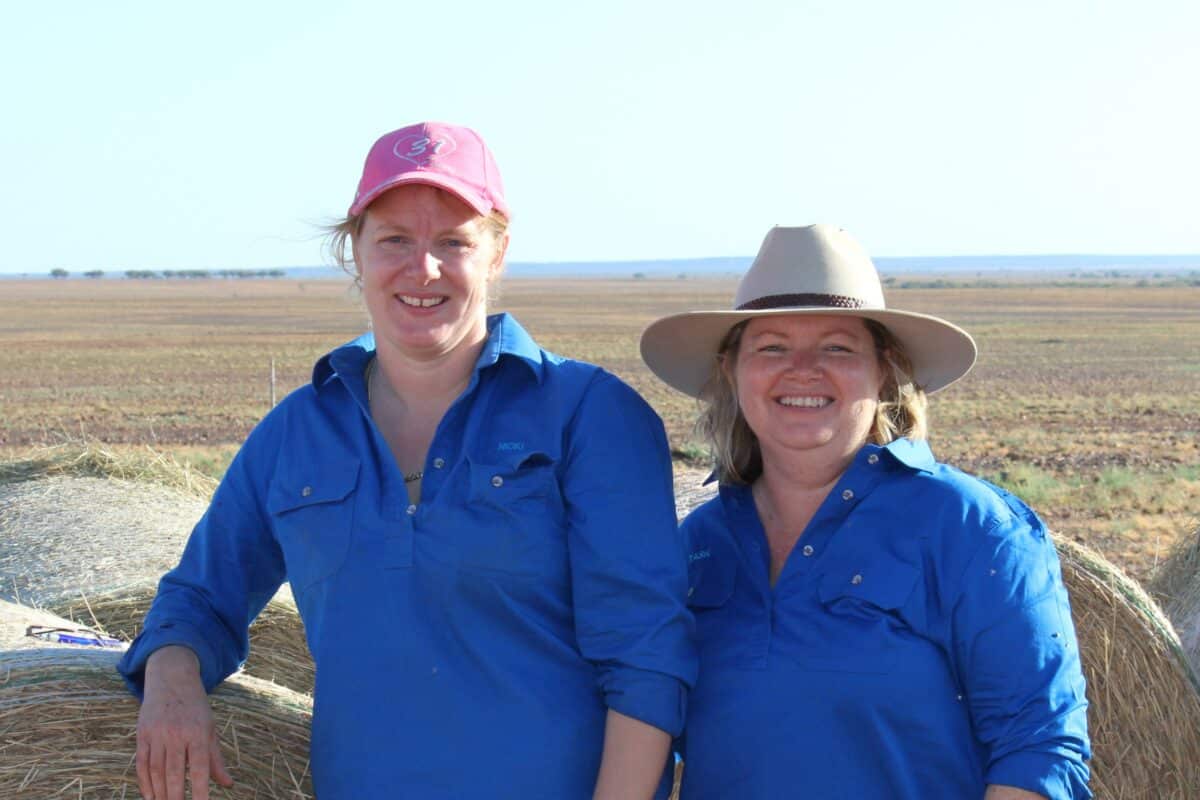
Farm Angels sees $10 million boost in donations in just one year
* Content created by Landline / by Courtney Wilson
For most businesses, it is difficult to imagine a $10 million increase in incoming cash in the space of just one financial year. This was the reality for Queensland charity Farm Angels, as drought tightened its grip on farms across the state and beyond.
“We’ve gone from the financial year of 2018, that year we raised $488,000 for the year, to last financial year, 2019, we raised just over $11 million,” said Tash Johnston, one of the charity’s founders.
Warning: this story mentions suicide.
Farm Angels describes itself as a small charity run by people with big hearts. At the helm is Mrs Johnston, who founded the group in 2014 with her friend Nicki Blackwell. The pair, based in Chinchilla on Queensland’s Darling Downs, were becoming increasingly distressed by the suffering caused by escalating drought. “I heard one story of a farmer in Queensland who was trying to sell his stock,” Mrs Johnston said. “The trucks came to take them to market and when they got there, the cattle were too poor.”
After the trucks left, the man took his own life. “That just stirred something inside of me. I felt I needed to do something to help,” Mrs Johnston said. Mrs Johnston has seen first-hand the pressure caused by financial strife. “I almost lost my mother to suicide in the 90s when interest rates were at 20 per cent, so I’ve seen what the pressure of banking and farming can do to families,” she said.
Easing the burden, from fridges to phone bills
What started out with collecting donations for nearby farmers quickly snowballed. “We started in a shipping container in my backyard,” Mrs Johnston said. “We grew to seven shipping containers before my husband put his foot down.”
Farm Angels now operates out of a warehouse in Chinchilla. Donated groceries and household items are collected and curated, before being given to farmers who could use a hand. “We had a family [whose] fridge had blown up, so they were using eskies,” Mrs Johnston said “We’ve had families who just literally have no food in the cupboards and it’s food that they needed assistance with. “Other families have bills that they can’t afford to pay, their phone bill or electricity bill, so we help them pay those. “We try to tailor what we do to individual family needs, if possible.”
Countering scepticism over cash donations
Following recent bushfires, the huge outpouring of cash donations sparked plenty of scepticism about how or if donations actually get where they are needed. It is something the founders of Farm Angels keep front of mind.
“We are responsible to not just the general public but to the ATO, to the ACNC, to our funding corporate sponsors and to the little kid who has done fundraising and has donated his pocket money,” director Jenny Gailey said.
“We take that very, very seriously and we want to make sure that everything that we do is for the benefit of our farmers.”
The charity employs more than a dozen staff, so wages are a necessary outlay, along with warehouse costs. But like most not-for-profits, volunteers keep things ticking over. Some, like retired couple Chris and Dean Barnett, have gone the extra mile to earn their wings. When they’re not in the warehouse packing hampers, they are on the road delivering care packages and spending time with drought-fatigued farmers.
“I think [Mrs Johnston] thought we’d only be there a couple of days,” Mrs Barnett said.
“Five years later, we’re still there five days a week volunteering because we just love it.”
“I think it’s about 1.7 million kilometres we’ve done,” Mr Barnett said.
Asking for help ‘incredibly hard’
The Barnetts recently met with Peter and Gill Gould, who run a beef cattle property and a horse riding business at Emu Creek, near Crows Nest in Queensland. Farm Angels assisted the couple by covering the cost of an outstanding bill to allow them to finalise an application for drought assistance through Centrelink.
“They said, ‘We’ve got a few things for you,’ and then they just bought in boxes and boxes of stuff,” Mrs Gould said.
“Here I am saying, ‘We don’t need it, it’s all right,’ and they just go, ‘Gill, every farmer says that!'”
Reluctance to seek help is not uncommon.
“Many of them, they’re at their last dollar before they’ve actually reached out to us — it’s incredibly hard for them,” Mrs Johnston said.
The Goulds admit they were reluctant to receive help but say they can now see how invaluable it was.
“It makes you realise you’re not the only one, it’s not your fault,” Mr Gould said.
“Our pride got in our way for a long time and we thought, ‘We don’t need charity,'” Mrs Gould said.
“But don’t be afraid to ask for help because you won’t believe what the difference it makes to you and to your day and to your week.
“Even weeks later you’ll go to the cupboard and there’ll be a cake mix or something and you just go, ‘Geez, that was nice.'”
According to Mrs Johnston, Farm Angels doesn’t do handouts; instead, it does thank yous.
“We’re just offering you a thank you for all that [farmers] do to put the food on our tables and the clothes on our backs,” she said.
